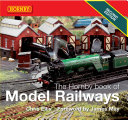The Deltics & Baby Deltics: A Tale of Success and Failure
Andrew Fowler
Oct 2022 · Pen and Sword Transport
Ebook
200
Pages
family_home
Eligible
info
reportRatings and reviews aren’t verified Learn More
About this ebook
Andrew Fowler is a well known writer of railway history, with a regular feature in Railway Herald Magazine. The Deltic class 55 Locomotives were some of the most successful, first generation diesels introduced to British Railways, being constructed from 1960-1962 and numbering twenty two, in the production class. The prototype machine was constructed in 1956 and was tested extensively on express trains on the London Midland and Eastern Regions of B R, until 1960. The interest and enthusiasm, for the class is reflected in the fact, that six examples of the class are preserved, including the 1956 prototype. The Baby Deltics, were a derivative Locomotive design, using one rather then two engines, for use on outer suburban and short main line semi fast services. Only ten Baby Deltics were constructed between 1961-1962, for use on services out of London Kings Cross. The Baby Deltics were all withdrawn within a decade, as they were not very successful in main line service.
About the author
Andrew Fowler has been writing articles for various railway magazines for many years, his native area is Lancashire, where he has been involved with railway preservation and historical research. He has a keen interest in both steam and first generation modern traction, this is his first book looking into two classes of early diesel traction. He is also a photographer by profession and has taken numerous railway pictures over the years, covering both historic and modern traction.
Rate this ebook
Tell us what you think.
Reading information
Smartphones and tablets
Install the Google Play Books app for Android and iPad/iPhone. It syncs automatically with your account and allows you to read online or offline wherever you are.
Laptops and computers
You can listen to audiobooks purchased on Google Play using your computer's web browser.
eReaders and other devices
To read on e-ink devices like Kobo eReaders, you'll need to download a file and transfer it to your device. Follow the detailed Help Center instructions to transfer the files to supported eReaders.








